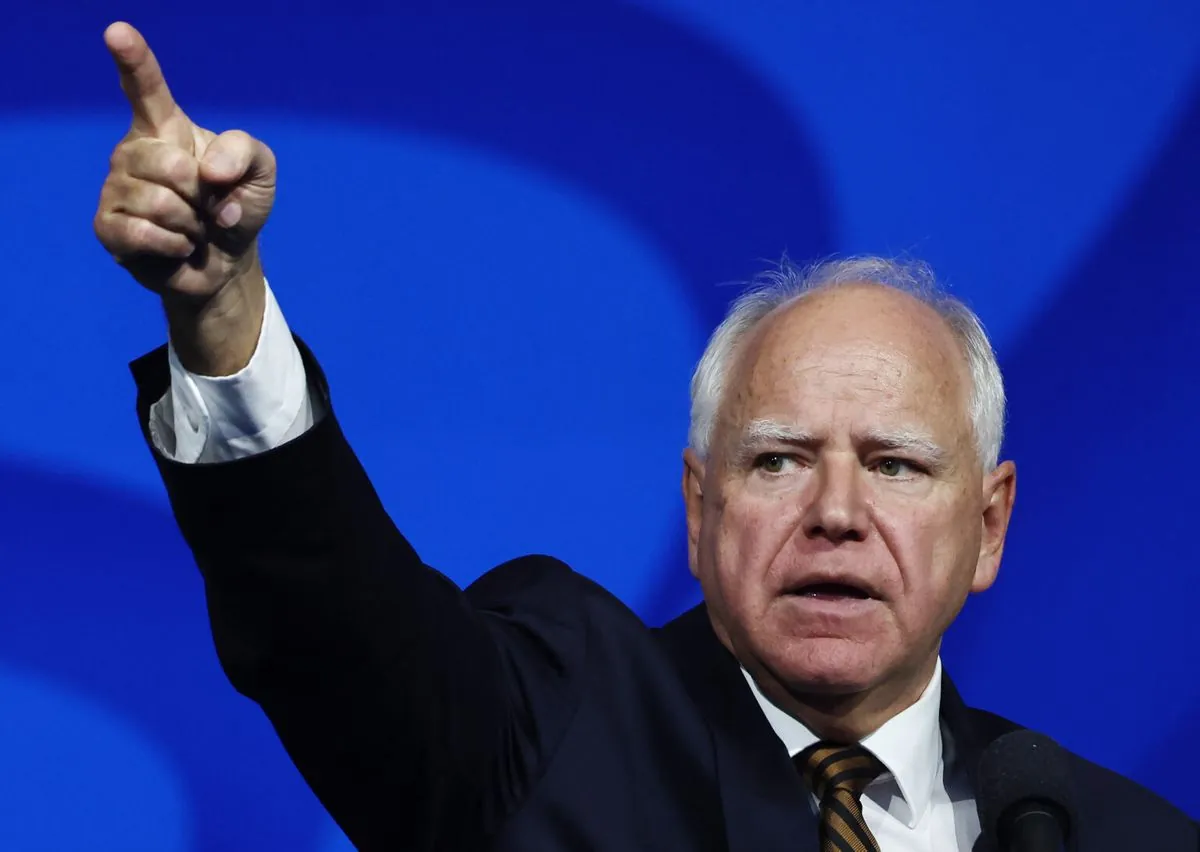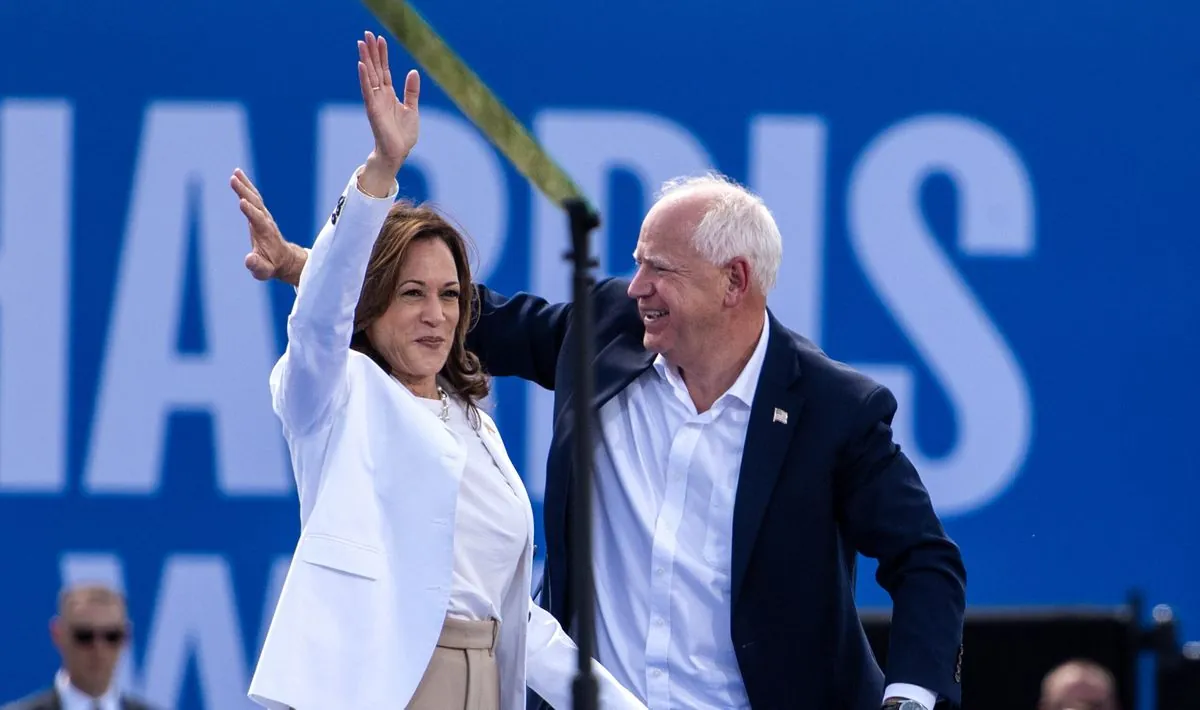Tim Walz Accepts Democratic VP Nomination, Bringing Midwestern Appeal
Minnesota Governor Tim Walz accepts the Democratic vice presidential nomination, joining Kamala Harris in the 2024 election. His Midwestern roots and folksy charm aim to appeal to rural voters in key battleground states.

Tim Walz, Minnesota's governor, has accepted the Democratic nomination for vice president, joining presidential candidate Kamala Harris in their bid for the White House. With the 2024 U.S. election just 11 weeks away, the duo is set to face former President Donald Trump in a highly anticipated contest.
Walz, 60, brings a unique background to the campaign. A military veteran with 24 years of service in the Minnesota National Guard, he also spent time as a high school social studies teacher and football coach. His acceptance speech is expected to highlight his upbringing on a Nebraska farm, his family life, and the freedoms that Democrats argue are under threat from Trump's potential return to office.
The Democratic National Convention in Chicago has featured a lineup of prominent speakers, including former President Bill Clinton, Transportation Secretary Pete Buttigieg, and former House Speaker Nancy Pelosi. Pelosi played a crucial role in the recent shift of Democratic leadership, which saw President Joe Biden step aside a month ago, leading to improved poll numbers for the party.

Barack Obama and Michelle Obama offered a strong endorsement of the Harris-Walz ticket at the convention. The former president praised Walz's authenticity, noting, "He knows who he is and what's important. You can tell those flannel shirts he wears don't come from some consultant."
Walz's rapid ascent to national prominence has not gone unnoticed by Republicans, prompting the Harris campaign to address questions about his military service and personal life. In response, the campaign has highlighted Walz's 24-year military career and his family's journey through fertility treatment.
The Democrats are strategically positioning Walz's Midwestern roots and straightforward communication style to appeal to white male voters in rural areas, a demographic that heavily supported Trump in previous elections. This approach aims to secure crucial battleground states such as Michigan, Pennsylvania, and Wisconsin.
"I love this guy. He knows who he is and what's important. You can tell those flannel shirts he wears don't come from some consultant. They come from his closet and they've been through some stuff."
As governor of Minnesota, Walz has implemented progressive policies, including free school meals, greenhouse gas reduction goals, expanded paid leave, and protection of collective bargaining rights. These initiatives have drawn criticism from Republicans, who view them as excessively liberal.
While the Democratic convention unfolds, Trump and his running mate, Senator JD Vance, are campaigning in North Carolina, focusing on national security issues. The Republican camp has been vocal in their criticism of the Democrats' economic plans.
As the election approaches, both parties are intensifying their efforts to sway voters in key swing states. The Harris-Walz ticket is banking on a message of optimism and unity, contrasting it with what they perceive as fear-mongering from their opponents. With polls currently favoring Harris in several battleground states, the race for the White House promises to be closely watched and fiercely contested.


































